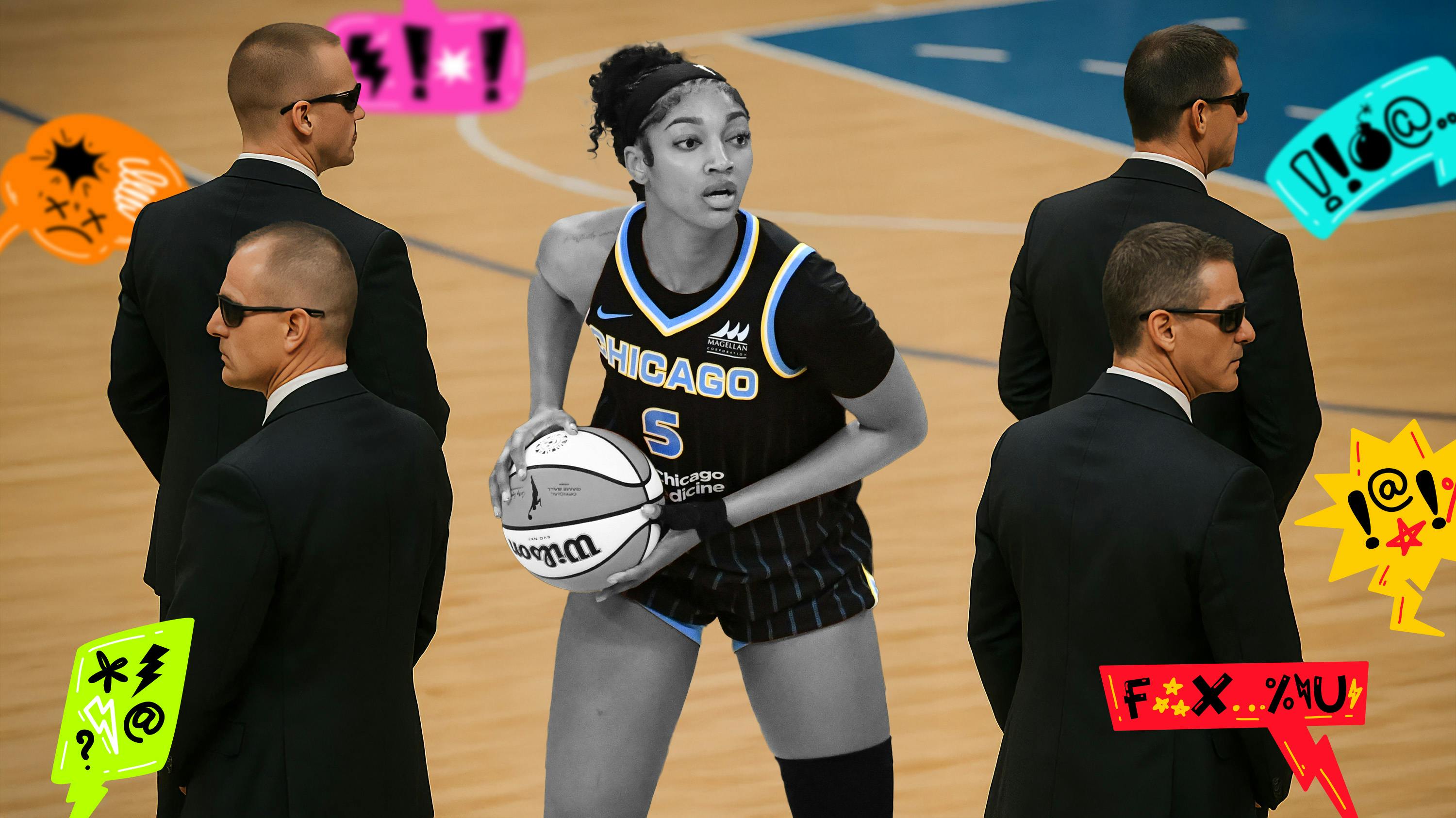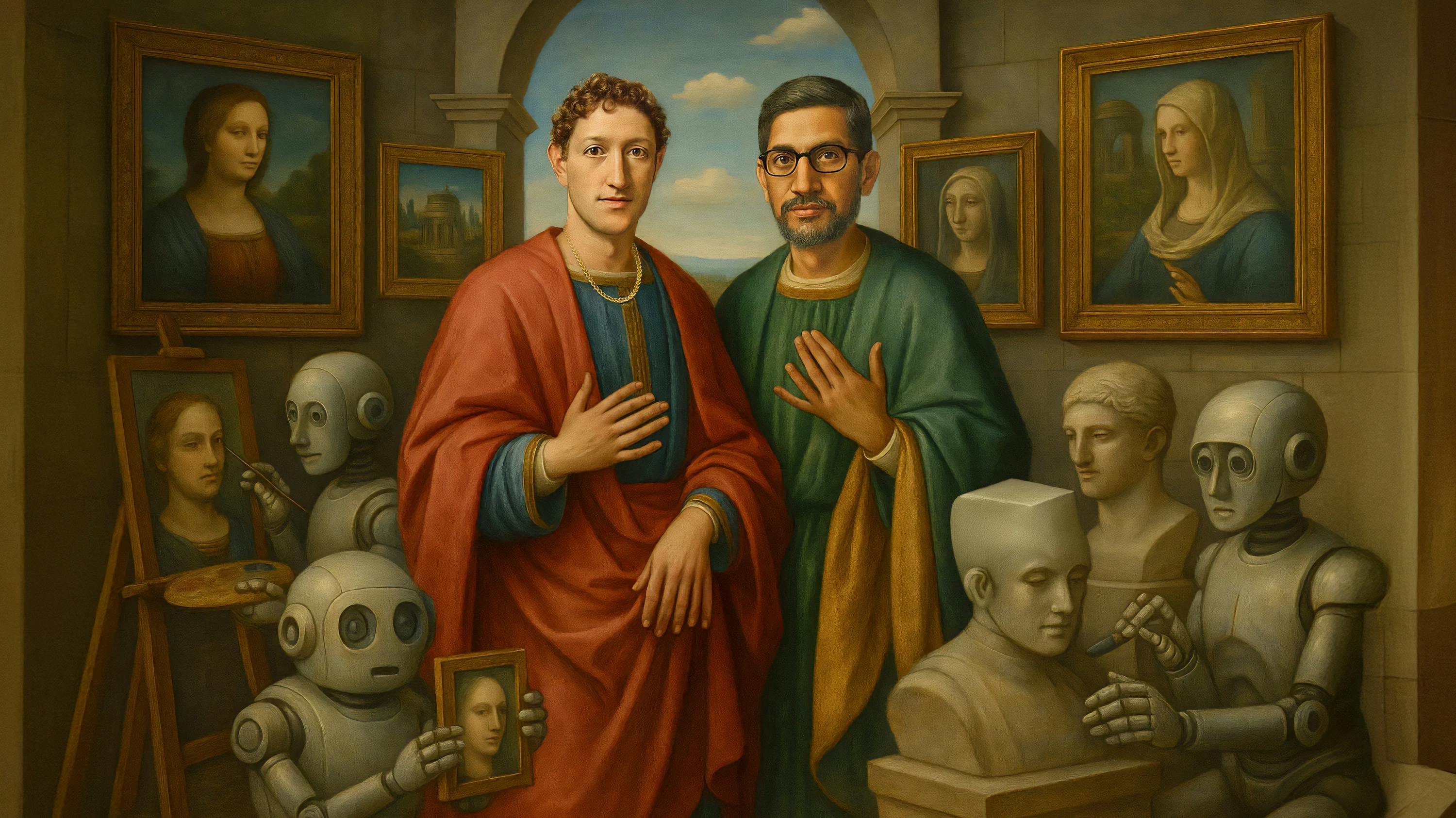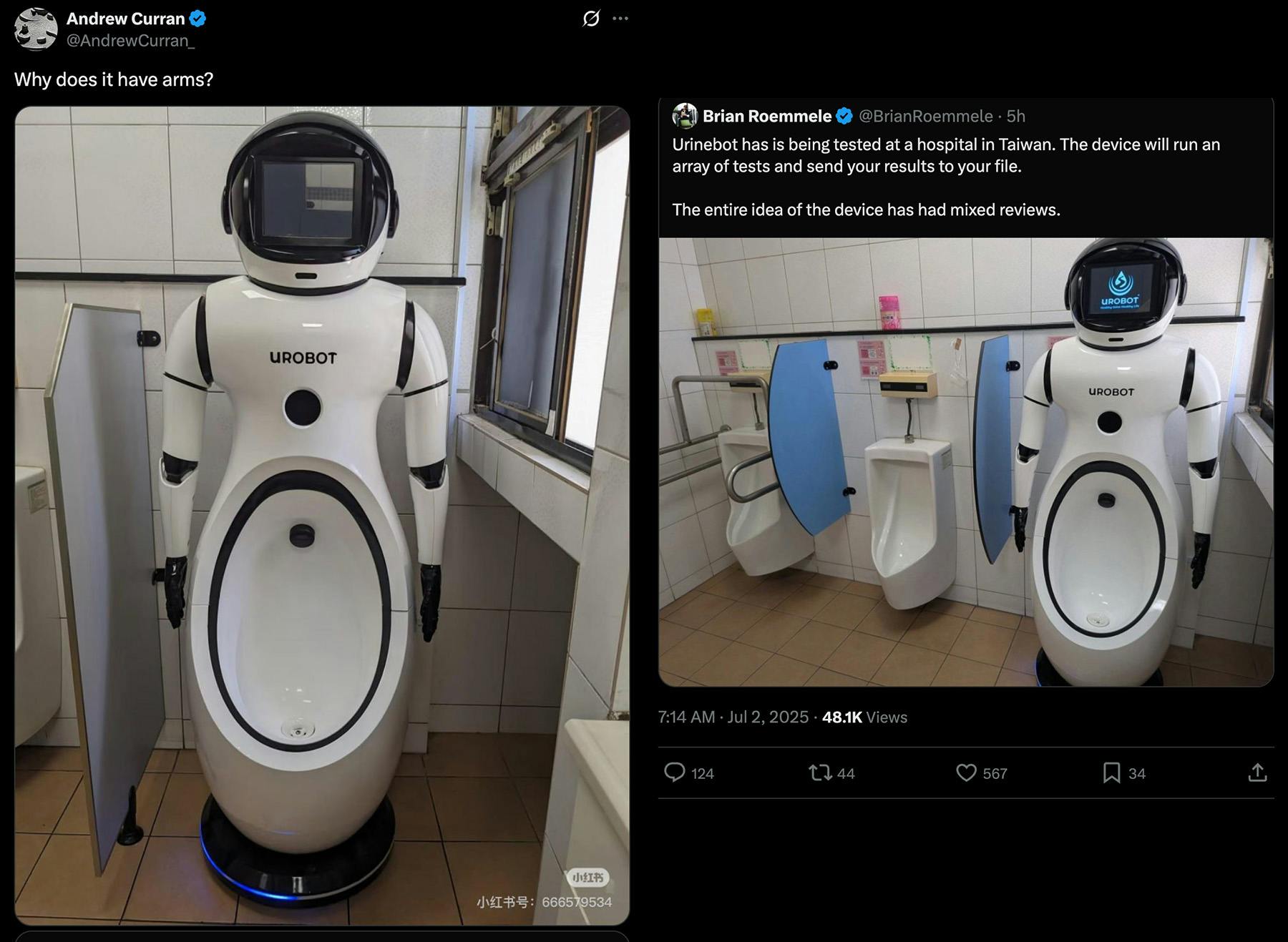| Welcome, Weekenders! In this newsletter: |
| • Lists: 25 great books for summer 2025 |
| • The Arena: A counter-terrorism startup is a surprise WNBA partner |
| • Artificial Intelligence: Why Meta and Google learned to love art |
| • Plus, our Recommendations: a pop-critic laureate; Alexander Hamilton’s dual roles; and a nightly island getaway |
| |
| The holiday weekend seems to have forced a momentary pause in the AI talent war between Meta Platforms and OpenAI: It’s been a whole six days since news leaked of some researcher jumping ship—and nearly as many days since Mark Zuckerberg or Sam Altman said something snarky about each other. |
| Neither CEO will walk away from this episode without some bruises and blemishes. Altman and OpenAI seem vulnerable (particularly if you factor in the simmering Microsoft drama, too). Sure, Zuckerberg’s actions may seem impressively aggressive—yeah, Zuck does founder mode, sick!—but I think you could argue they betray at least a little sense of desperation, too. A bit like the person who blows a wad of dollars at a club thinking it’ll guarantee him (it’s always a him) a good time. |
| All things considered, the person who seems like a real peach at the moment is Dario Amodei, the Anthropic co-founder (and, yes, disillusioned former vice president of OpenAI). While Zuckerberg and Altman have busied themselves trading blows, Amodei and Anthropic have been talking up efforts to study—and mitigate—the potential economic tumult that AI could cause and a very neat experiment involving an AI-powered vending machine. |
| Give it a little time, and I think Amodei and Anthropic might wind up as the real winners from the catfight between OpenAI and Meta. Amodei has long emphasized his steady-hand approach, and more than ever, Anthropic seems like the more stable, cool-minded operation, even if OpenAI—with ChatGPT—still has more of a brand-name advantage, and Meta has its infinite money machine. That’s gonna be important to at least some poachable AI talent. |
| If Zuckerberg and Altman could only stop to consider how their fight might allow Anthropic and other rivals to prosper and emerge as even more formidable foes, maybe they’d concede to a cease-fire more quickly. |
| OnlyFans Billionaire’s New Identity |
| Not much is known about OnlyFans’ billionaire founder, Leo Radvinsky. He was raised in Chicago but now lives in Florida (of course he does). He’s rich and might get even richer if a reported sale of his porn site—sorry, subscription-based Creator Economy startup—actually happens. Oh, and he’s lately shown some interest in philanthropy: He’s signed the Giving Pledge and made a rare appearance last year at a gala for a gastrointestinal research foundation. |
| Clearly, Radvinsky is entering a pretty typical phase of life for the ultra-wealthy when they stop working in the traditional sense and instead labor to redo their reputations. |
| That’s the thing about billionaires. One minute they’re obsessed with making money. In the next, they’re trying to make everyone forget about how exactly they earned it. |
| Terror—and Candor—in Hollywood |
| After “M3GAN 2.0” short-circuited at the box office, the film’s producer, Jason Blum—an industry stalwart—swung by Matt Belloni’s “The Town” podcast for a remarkably thorough dissection of what went wrong with the scary robot movie. |
| “We all thought M3GAN was like Superman. We could do anything to her. We could change genres. We could put her in the summer. We could make her look different. We could turn her from a bad guy into a good guy,” Blum said. “We kind of classically overthought how powerful people’s engagement was, really, with her.” |
| Imagine if a horror villain was so up front about things. Hannibal Lecter would’ve starved—the Bates Motel would’ve closed in a week. Another terrifying thought: Imagine if all media executives were regularly so honest.—Abram Brown |
| |
|
|
 |
|
| Does the ole Kindle need a refresh? I’ve got you covered—and then some—with Weekend’s latest seasonal picks of must-reads. As always, the package isn’t anything as tedious as a best-of-the-year list: By contrast, these are books I genuinely think you’ll enjoy. |
| I’ve stocked the shelves with a real-life “Succession” tale, a novel in which the moon turns into cheese (no, really!) and a clever mystery about a dead startup founder written by an early Airbnb employee, Jakob Kerr, who describes his book, “Dead Money,” as a cross between “Michael Clayton” and an Agatha Christie puzzler. Kerr landed on the premise when he one day stopped to consider the daunting nature of solving any founder’s murder. “The list of suspects would be endless,” he said. “Because of all the billions of dollars at stake.” |
|
 |
|
| The Chicago Sky and the WNBA—sports leagues, generally—have a tremendous problem trying to protect their stars from online abuse. AI has allowed such content to proliferate, while internet companies have generally retreated from the demands of policing it. The situation forced the Sky’s managers to take matters into their own hands, and after previous reporting by The Information, the Sky decided to ink an unexpected partnership with a business best known for helping governments catch bad guys online, our Sara Germano reports in The Arena, a new franchise within Weekend devoted to the business of sports. |
|
 |
|
| Wall Street and other traditional blue-chip firms have long kept up a sideline as major patrons of the art, accumulating significant art collections. Silicon Valley as a whole hasn’t really nursed much of an interest in art. The AI revolution is changing the industry’s perspective, though, frequent Weekend contributor Josh Duboff explains. One gallerist, Steven Sacks, told Josh he’s had interest from big tech firms interested in buying AI art. Other companies are handing out new AI tools to artists to help them flourish, while they use the relationship to polish the software, hoping to eventually commercialize it. |
| Abram Brown, editor of The Information’s Weekend section, hopes you too are celebrating the big, beautiful…holiday break! Reach him at abe@theinformation.com. |
| |
 |
| Listening: “Cannonball” (The New York Times) |
| Culture critic Wesley Morris begins his new podcast, “Cannonball,” with a confession. Here’s my own: I’d listen to him talk about anything. No one probes further, faster at the forces behind pop culture in such a delightful—and unpretentious—manner. And it’s just as well that I’m willing to grant him so much leeway, because he’s clearly taking a broad view to what he covers on “Cannonball,” describing its mission as “doing culture, but with feelings.” (Whatever that means. Who cares! It’s Wesley.) |
| So what was Morris’s confession? That he loves, loves, loves Bruno Mars, the Latino-Filipino artist who has co-opted the sounds of Black music into lucrative stardom, attracting some amount of detractors. Morris, who is Black, delves into Mars’ remixing of Black culture in the first episode of “Cannonball,” which came out last week. |
| Still, even the best deserve some criticism. The podcast’s title, “Cannonball,” baffles me. The meaning behind it goes unexplained in any of the promotional material announcing the show—and Morris offers zero explanation in his debut episode. The New York Times might as well have called it “The Wesley Morris Show,” though I bet every ego at the Times would then demand an eponymous show. |
| Reading, Fourth of July-edition: “The Fate of the Day” by Rick Atkinson and “Theater Kid” by Jeffrey Seller |
| Rick Atkinson’s first non-fiction trilogy centered on the Allied liberation of Europe during World War II won him a Pulitzer Prize, the third such award for the former Washington Post reporter turned military historian. He’s currently at work on another trilogy, which examines the American Revolution—with “The Fate of the Day” as the second volume, covering 1777 to 1780. |
| By the time Atkinson finishes his latest trilogy, it’s easy to imagine him picking up his fourth Pulitzer—perhaps for “The Fate of the Day,” a master class in historical research and the importance of the little colorful details that animate narrative non-fiction: the mahogany-and-brass spyglass carried by George Washington; the thousand-bottle wine collection with five brands of champagne used by Benjamin Franklin to court the French; and the “lascivious tomcat” owned by Martha Washington that she named after her husband’s randy aide, Alexander Hamilton. |
| Speaking of Hamilton, he also has a major role in “Theater Kid” by Jeffrey Seller, the memoirs of a prominent Broadway producer. Yes, you can probably guess it: Seller produced Lin-Manuel Miranda’s “Hamilton” as well as “In the Heights,” the musical that first put Miranda on the map. Before those shows, Seller had staged his own sort of American revolution in the 1990s. He helped guide a new generation of American composers onto the Great White Way after the theater scene had mostly fallen into the hands of the British: specifically, Andrew Lloyd Webber and his partner Cameron Mackintosh. Seller produced “Rent,” as well as “Avenue Q,” musicals as singularly American as any founding father, I’d argue. Even if the lyrics to Trekkie Monster’s “The Internet Is for Porn”—grab your dick, double click!—might turn Martha Washington crimson. |
| Watching: “Love Island USA” (Peacock) |
| Some people summer on Nantucket. Or Martha’s Vineyard. Meanwhile, the heathens among us stay at home and still manage to get an island getaway—nearly every night!—from “Love Island USA,” a cult-favorite reality show that has won over even determined reality haters like me. Based on an earlier, nearly identical British series, “Love Island USA” rests on a downright feral premise: Lock away a group of uber-attractive contestants in a Fijian villa with zero access to the outside world, let them couple—then let the audience vote on how they should re-couple. (Nominally, they compete for a $100,000 prize.) Several dozen cameras installed around the manse capture the fracas; Ariana Madix (from “Vanderpump Rules”) joined last season as the nimble, winky host. |
| Like, uh, a tall, tropical sun, “Love Island USA” burns fast and bright, airing every weeknight except Wednesdays over a 26-episode stretch. (It ends July 13.) The unusual structure is the series’ deft innovation, sparking a velocity and density of conversation about the contestants and their goings-on. Much of the chatter happens online, but I’ve noticed more than a couple Manhattan bars advertising viewing parties on sidewalk chalkboards—it’s some of the only appointment viewing in the modern television era. The shortened run probably helps draw in plenty of people like me, who generally get bored of reality TV’s banality over an extended season. My one kvetch: “Love Island USA” should have bisexual and gay contestants. Think of the added drama if anyone and everyone truly saw each other as fair game. That’s something I learned on Fire Island.—Abram Brown |
| |
|
| C’mon! They just wanted to get a…leg up on the competition. |
 |